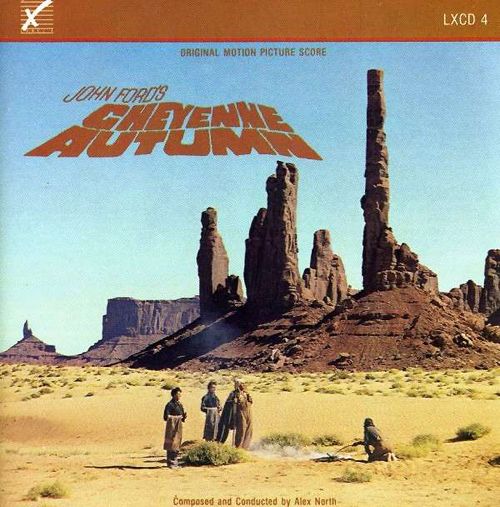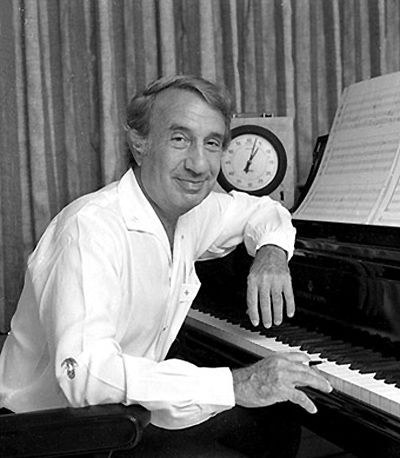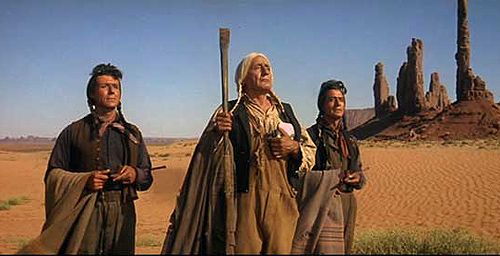
Online Casino South Africa

Online Casino New Zealand

Online Casino India

Online Casino Australia

Online Casino UK

Online Casino Canada

Online Casinos
Cheyenne Autumn is a 1964 Western movie starring Richard Widmark, Carroll Baker,
James Stewart, and Edward G. Robinson. Regarded as an epic film, it tells the story of a factual
event, the Northern Cheyenne Exodus of 1878-9, although it is told in ‘Hollywood style’ using
a great deal of artistic license and whiskey. The film was the last Western directed by John Ford,
who proclaimed it an elegy for the Native Americans who had been abused by the U.S.
government and misinterpreted by many of the director’s own films. With a budget of more
than $4,000,000, the film was relatively unsuccessful at the box office and failed to earn a
profit for its distributor, Warner Bros.
The reviews were mixed. Bosley Crowther, critic for The New York Times, praised it highly, calling
it "a beautiful and powerful motion picture that stunningly combines a profound and passionate
story of mistreatment of American Indians with some of the most magnificent and energetic cavalry-
and-Indian lore ever put upon the screen." He was disappointed, however, that after the humorous
(if "superfluous") Dodge City sequence, "the picture does not rise again to its early integrity and
authenticity", and the climax is "neither effective and convincing drama nor is it faithful to
the novel".The New Yorkers Richard Brody cited the "rueful, elegiac grandeur of John Ford’s
final Western".
Variety disagreed, however, calling it "a rambling, episodic account" in which "the original premise
of the Mari Sandoz novel is lost sight of in a wholesale insertion of extraneous incidents which bear
little or no relation to the subject", while Dennis Schwartz of Ozus’ World Movie Reviews
described it as "a big mess", though he lauded Widmark’s "sensitive performance", Alex North’s
score and William Chothier’s "stunning photography".
Music Composed and Conducted by
Alex North
Orchestrations by
Henry Brant
Tracks:
1. Overture (03:10)
2. Main Title (02:17)
3. Indians Arrive (01:27)
4. Friend Deborah / Waiting for Supplies (02:25)
5. The School House (01:16)
6. Archer (01:51)
7. Rejection (04:15)
8. Truth (00:52)
9. Entr’acte (01:17)
10. River Crossing (02:24)
11. Sick Girl (03:26)
12. The Battle (03:40)
13. Dodge City (02:14)
14. Cattle Drive (01:46)
15. Old Chief (01:37)
16. Lead Our People Home (03:09)
17. Death (02:35)
18. The People (01:10)
19. Spring / Soldiers / Alarm (03:18)
20. Hope (01:10)
21. End Title & End Cast (00:52)
Total Time: 46’11
Sharing of this album has ended. No more requests and no re-ups(!) of my rip, please!
It’s funny — Ford could seem kind of indifferent to scores. I watch many of his films. Themes evolved over years, yes — yet by the mid fifties and the sixties his perspective truly changed. He had some fine scores throughout his career but things deepened, grew harsher at times and — more so than before even with his best works — whatever the process was like, North became as vital a collaborator as some of his best screenwriters and actors.
Yes, I truly like and value many of his scores, from the sweetest to the dire. Others I sigh and nod to for they’re there. North’s music is among the best in Ford’s ever and, yes, among his own always unique, innovative best scores.
If it’s possible, may I have this link? Again, thank you for what you do here — and how and why you do it always.
It’s funny — Ford could seem kind of indifferent to scores. I watch many of his films.
Yeah. Very few of Ford’s films have outstanding scores. This and Young’s The Quiet Man are probably the best.
Ford seemed to have had a penchant for folk music, hence the quotation of so many traditional songs/themes in the scores for his films.
Please and thanks!
Disclaimer : Just hypothesis.
Maybe because Ford was more of the early studios era director where the latter didn’t have much of a say with the composer ? At the times, directors were ofthen assigned movies with actors and some technicians already chosen (I read somewhere that for example Curtiz and another director, both unhappy with what they had been assigned, switched projects, Curtiz ending up with Casablanca).
Would love for this North score (a composer sadly underrepresented on my shelves).
Thank you!!!
Thanks in advance
Brant regularly orchestrated for North from the 1960s.
Sent.
Enviame el link
Thanks!!!
Sharing of this album is ending soon.
Sharing of this album has ended. No more requests and no re-ups(!) of my rip, please!



